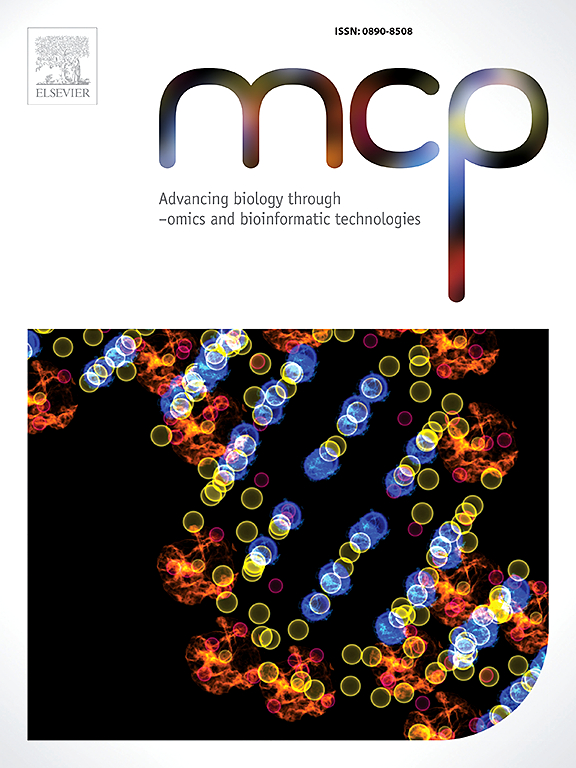Secreted clusterin inhibits keloid formation by promoting fibroblast apoptosis
IF 3
3区 生物学
Q3 BIOCHEMICAL RESEARCH METHODS
引用次数: 0
Abstract
Keloids are benign dermal proliferations resulting from excessive fibroblast activity that extends beyond the original site of injury. This study aims to investigate key biomarker genes associated with cell apoptosis and proliferation in the pathogenesis of keloids. Bioinformatic analysis of Gene Expression Omnibus datasets identified 122 differentially expressed genes (DEGs) in samples from keloid patients. Following the intersection with apoptosis-related genes (ARGs), three DEGs—ANLN, CLU, and SFRP2—were identified as keloid-associated ARGs. Among these, the expression of CLU was consistently reduced across both training and validation datasets. Experimental validation confirmed the expression alteration of CLU in keloid patient samples and further revealed that the expression of secreted CLU (sCLU) was significantly decreased in keloid fibroblasts. At the same time, BAX was down-regulated while BCL2 was up-regulated. Overexpression of sCLU in keloid derived primary fibroblasts significantly promoted apoptosis and reduced the viability of the cells, accompanied with up-regulated BAX and down-regulated BCL2, and fibrotic factor genes, such as collagen I, collagen III, α-SMA and CTGF. In contrast, serum levels of CLU did not differ significantly between keloid patients and non-related controls, suggesting limited utility of circulating CLU as a diagnostic biomarker. Taken together, these findings reveal a crucial role of sCLU in keloid pathogenesis, thereby presenting a potential tissue-level biomarker for keloid diagnosis and a promising therapeutic target.
分泌的聚簇素通过促进成纤维细胞凋亡抑制瘢痕疙瘩的形成
瘢痕疙瘩是一种良性的皮肤增生,由过度的成纤维细胞活性引起,并延伸到原始损伤部位以外。本研究旨在探讨瘢痕疙瘩发病过程中与细胞凋亡和增殖相关的关键生物标志物基因。基因表达Omnibus数据集的生物信息学分析鉴定了瘢痕疙瘩患者样本中的122个差异表达基因(DEGs)。在与凋亡相关基因(ARGs)交叉后,三个degs——anln、CLU和sfrp2被鉴定为瘢痕疙瘩相关的ARGs。其中,CLU的表达在训练和验证数据集中都一致降低。实验验证证实了瘢痕疙瘩患者样本中CLU的表达改变,并进一步揭示了瘢痕疙瘩成纤维细胞中分泌CLU (sCLU)的表达显著降低。同时BAX下调,BCL2上调。瘢痕疙瘩源性原代成纤维细胞过表达sCLU可显著促进细胞凋亡,降低细胞活力,BAX上调,BCL2下调,I型胶原、III型胶原、α-SMA、CTGF等纤维化因子基因下调。相反,在瘢痕疙瘩患者和非相关对照组之间,血清CLU水平没有显著差异,表明循环CLU作为诊断生物标志物的效用有限。综上所述,这些发现揭示了sCLU在瘢痕疙瘩发病机制中的关键作用,从而提出了瘢痕疙瘩诊断的潜在组织水平生物标志物和有希望的治疗靶点。
本文章由计算机程序翻译,如有差异,请以英文原文为准。
求助全文
约1分钟内获得全文
求助全文
来源期刊

Molecular and Cellular Probes
生物-生化研究方法
CiteScore
6.80
自引率
0.00%
发文量
52
审稿时长
16 days
期刊介绍:
MCP - Advancing biology through–omics and bioinformatic technologies wants to capture outcomes from the current revolution in molecular technologies and sciences. The journal has broadened its scope and embraces any high quality research papers, reviews and opinions in areas including, but not limited to, molecular biology, cell biology, biochemistry, immunology, physiology, epidemiology, ecology, virology, microbiology, parasitology, genetics, evolutionary biology, genomics (including metagenomics), bioinformatics, proteomics, metabolomics, glycomics, and lipidomics. Submissions with a technology-driven focus on understanding normal biological or disease processes as well as conceptual advances and paradigm shifts are particularly encouraged. The Editors welcome fundamental or applied research areas; pre-submission enquiries about advanced draft manuscripts are welcomed. Top quality research and manuscripts will be fast-tracked.
 求助内容:
求助内容: 应助结果提醒方式:
应助结果提醒方式:


